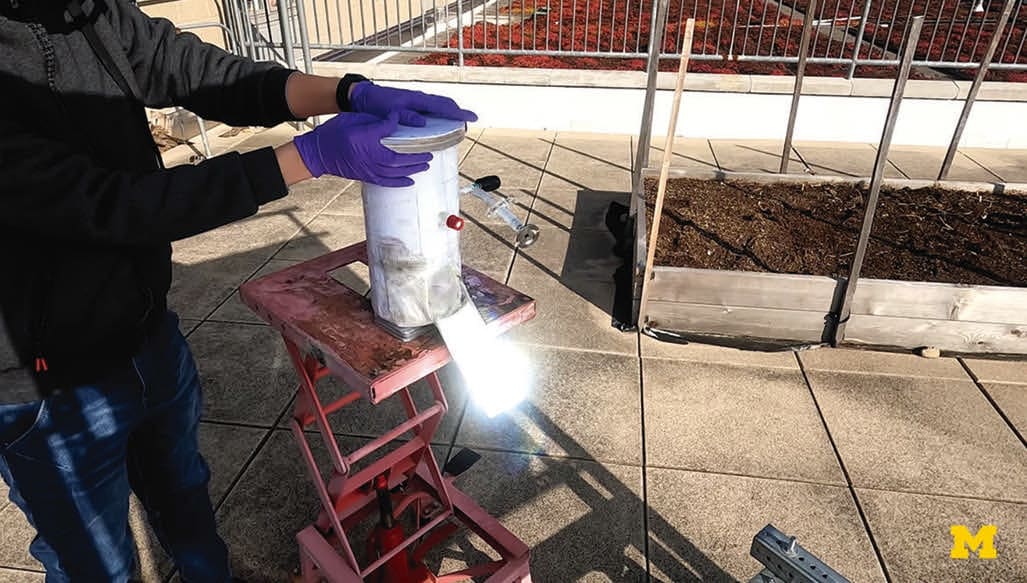
A New and Improved Method of Solar Water Splitting
Researchers at the University of Michigan have developed a new kind of solar panel that is nearly 10 times more efficient than previous tech of its kind. “In the end, we believe that artificial photosynthesis devices will be much more efficient than natural photosynthesis, which will provide a path toward carbon neutrality,” said Zetian Mi, Professor of Electrical and Computer Engineering.

www.techbriefs.com/tv/new-water-splitting
Cheap, Efficient Method to Weld Metal, Plastic
Researchers have developed a method for welding metal and polypropylene. “We’ve patented the process and we’re already working with equipment makers to develop commercial equipment that can be licensed to automakers and other manufacturers,” said Pingsha Dong, the Robert F. Beck Collegiate Professor of Engineering.

www.techbriefs.com/tv/welding-plastic
Novel Coating Supports Clean Energy for the Future
Fei Peng, Associate Professor of Materials Science and Engineering at Clemson, is leading research to develop a new type of coating for the blades of turbines powered by hydrogen. “When we think long term and what the Earth will look like for our kids, we need to consider how we can generate clean energy in the future,” said Peng.

www.techbriefs.com/tv/hydrogen-turbine-coatings
Growing Macroscale, Modular Materials from Bacteria
Bioscientists at Rice University have introduced centimeterscale, slime-like colonies of engineered bacteria that self-assemble from the bottom up. It can be programmed to soak up contaminants from the environment, among many possible applications. “We’re making material from bacteria that acts like putty,” said Rice Bioscientist Caroline Ajo-Franklin.

www.techbriefs.com/tv/slime-like-materials

